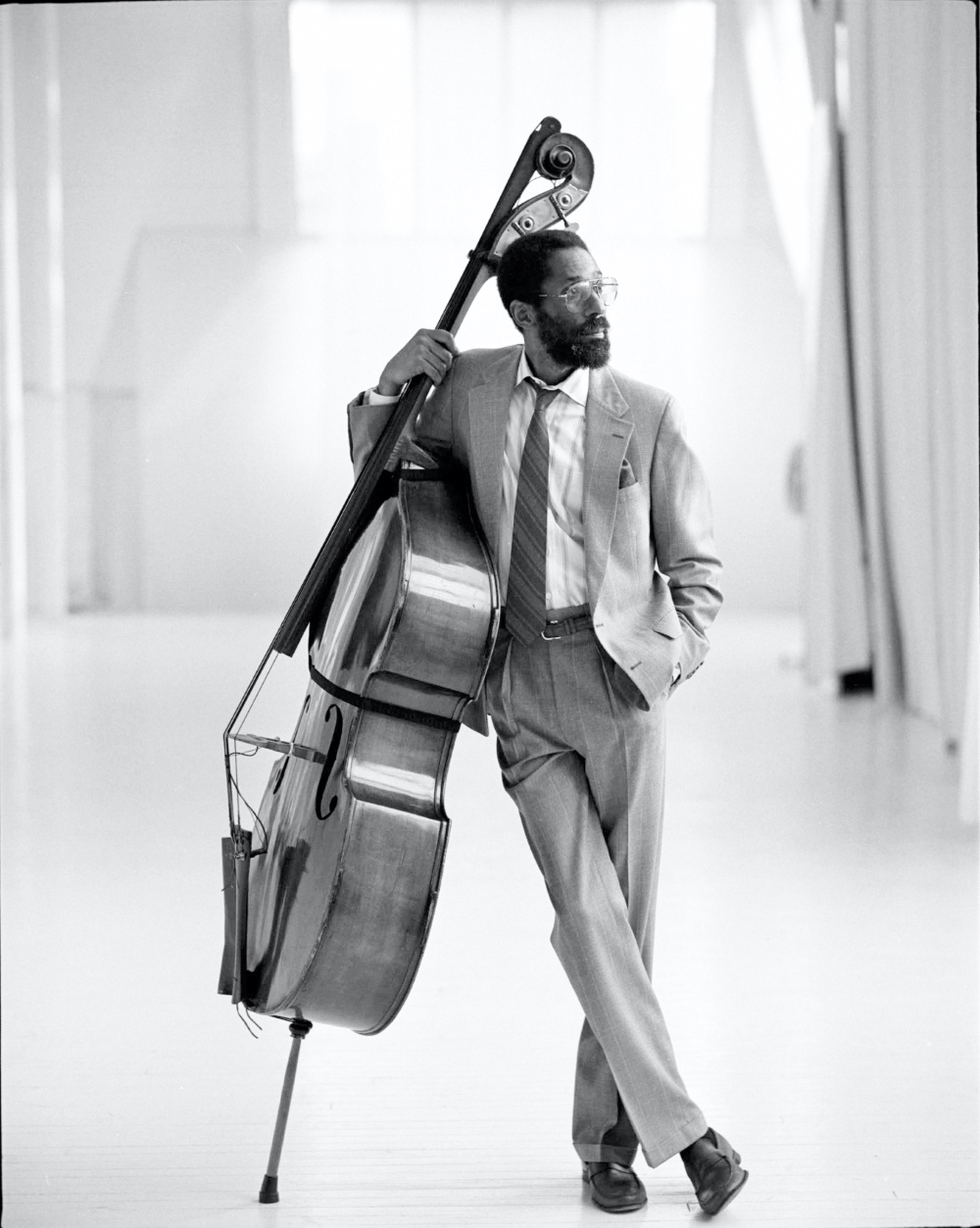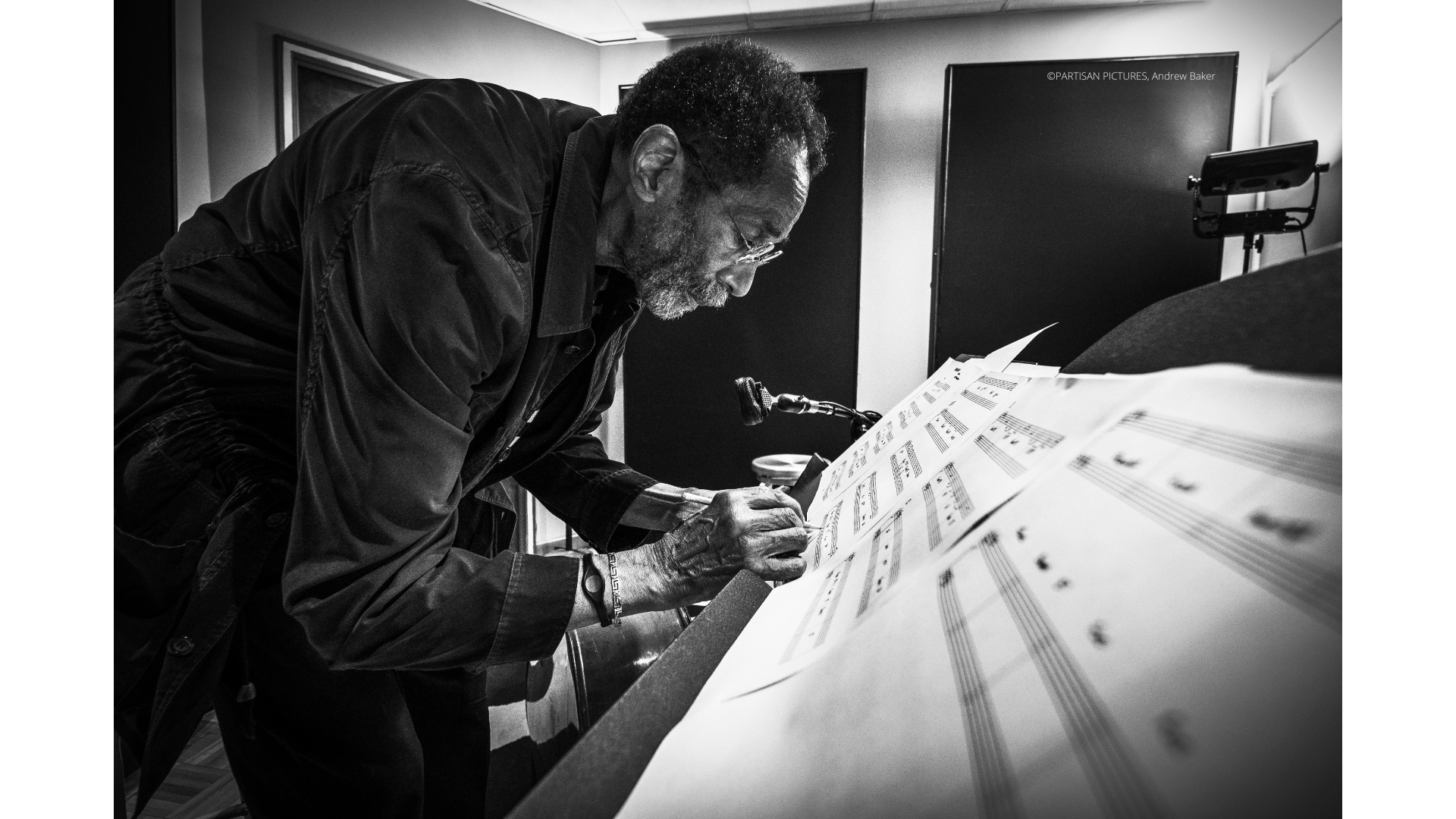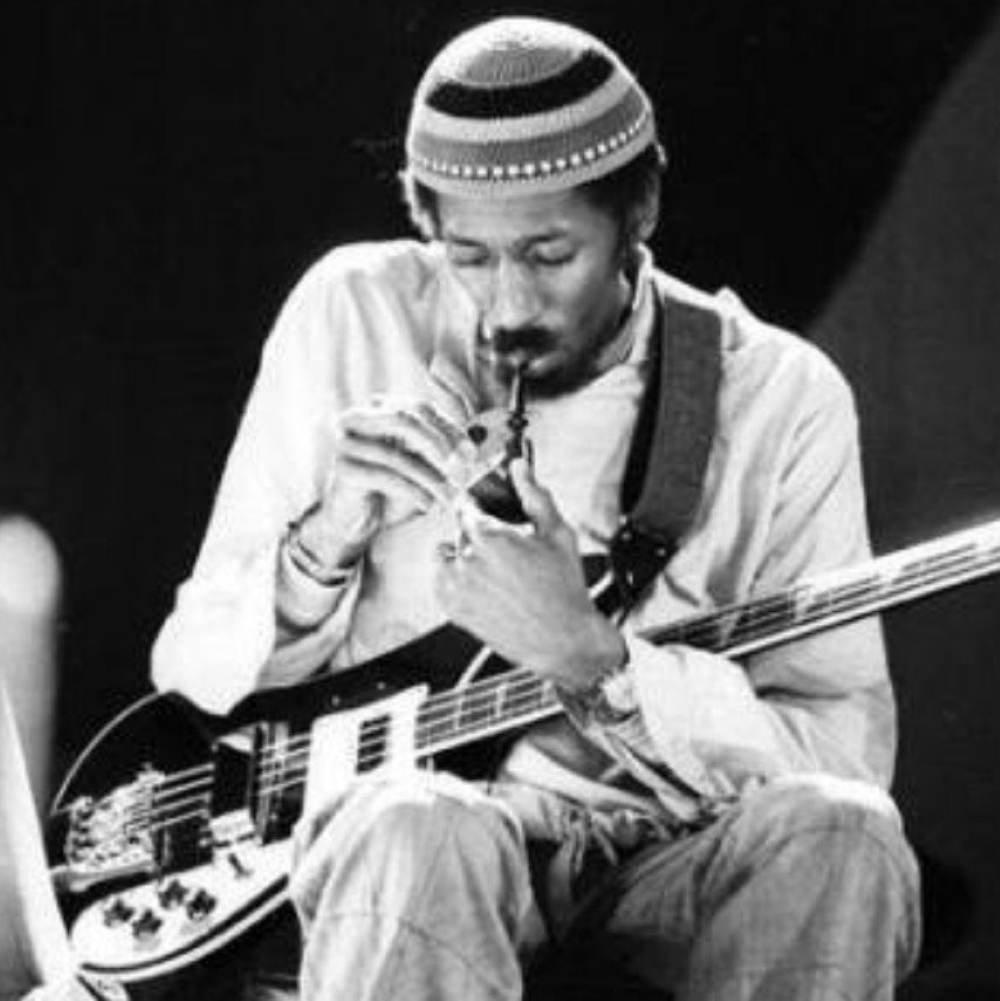Ron Carter
jazz double bassist
US
„Most recorded jazz bassist in history“. That title, according to ‚Guinness World Records‘, is certainly earned by Ron Carter. He has played on 2,221 recording sessions up until September 15th, 2015 (and more since then). The slim and tall Afro-American (6 ft 3 in), who plays double bass, has won three Grammy awards. From May 1963 to mid-1968 he was a member of the second Miles Davis‘ Quintet and recorded six studio- (plus some live-) albums with this influential band. Ron Carter is „one of the best bass-players of all times“ (‚Rolling Stone‘-online, July 1st, 2020). This man can truely be called a legend and is referred to in his press file for a good reason as „Maestro“.
Ron Carter
jazz double bassist
US

Ronald Levin Carter (born May 4, 1937 in Ferndale, Michigan) started to play cello at the age of ten. While in high school he switched to bass. Being an outstanding talent he earned a B.A. in music from the Eastman School of Music in 1959 and a master's degree in music from the Manhattan School of Music (1961). His first job as a jazz musician was playing with Chico Hamilton in 1959. In the mid- to late 1960s Ron Carter was a member of the second Miles Davis Quintet. „Although he played electric bass occasionally during this era of early jazz-rock fusion, he has subsequently stopped playing that instrument, and in the 2000s plays only double bass“ (Wikipedia). The virtuoso was a sideman on many recordings of the era on the legendary Blue Note label. After leaving Miles Davis, Mr. Carter started making albums under his own name.
In the years to come Ron Carter won three Grammy awards. He appears on the alternative hip hop group A Tribe Called Quest’s influential album „The Low End Theory“ (track: „Verses from the Abstract“), wrote and recorded pieces for string quartets and Bach chorales for two to eight basses and accompanied Danny Simmons on a spoken word album. As a teacher he has lectured, conducted, and performed at clinics and master classes, instructing jazz ensembles and teaching the business of music at numerous universities. Mr. Carter has also received six honorary doctorates plus international awards like „The Order of the Rising Sun“ (Japan) and France's premier cultural award, the medallion and title of „Commander of the Order of Arts and Letters“.
As an author Ron Carter shares his expertise in the series of books he authored, where he explains his creative process and teaches bassists of all levels to improve their skills and develop their own unique sound. He also penned his autobiography “Finding the Right Notes”. His books share a unique feature he pioneered, that of including QR codes in every book that lead to additional material, instructional videos, all enriching the text and making each book more valuable.
In 2021 he pioneered a new type of music transcription with Chartography, which follows the development of the bassline for „Autumn leaves“ over five performances with the Miles Davis Quintet, showing not only the bassline but also how the band responded and how the entire tune transformed over time.
Ron Carter, who lives in New York, spends at least half the year on worldwide tours with his various groups: The Ron Carter Trio, The Ron Carter quartet, the Ron Carter Nonet and Ron Carter’s Great Big Band.
Interview June 2022
„The Maestro“ shares his secret: the origin of finding the right notes
INTUITION/IMAGINATION
Are great ideas based on intuition and - as a possible follow-up - do they reveal themselves in a kind of clear as well complete version that just to be realized? Or is it endless trials and errors that result in constant developments up until the final result?
All of the above.
INSPIRATION
What inspires you and how do you stimulate this special form of imaginativeness?
My discipline and my trust in my environment to respond musically to it
How do you separate the good from the bad and which ideas are worthwhile to be explored further or whether one idea has the potential of being outstanding really?
I can’t tell you till it happens.
CREATIVITY
If problems occur during the creativity or one’s stuck, how can that be solved?
I’m not sure what stuck is – if you’re creative, by definition, that doesn’t happen.
How is innovation still possible if one has established a distinctive style?
That style IS your innovation.
SUCCESS
Is it desirable to create the ultimate/timeless work, but doesn’t “top of the ladder” bring up the question of “what’s next?” i.e. isn’t such a personal peak “the end”?
Nope.
MY FAVORITE WORK
I am often asked what my favorite tune, album, artist, etc. is. I always have the same answer – There isn’t one! I cannot possibly pick a single (or even a top 10) of things that are better than all the rest. Each one has its own unique qualities. And my inspiration comes from the world around me, not from any epiphany I had hearing some music. My parents, the world I grew up in, etc. The things that make you the person you become – they all combine to inspire me.


